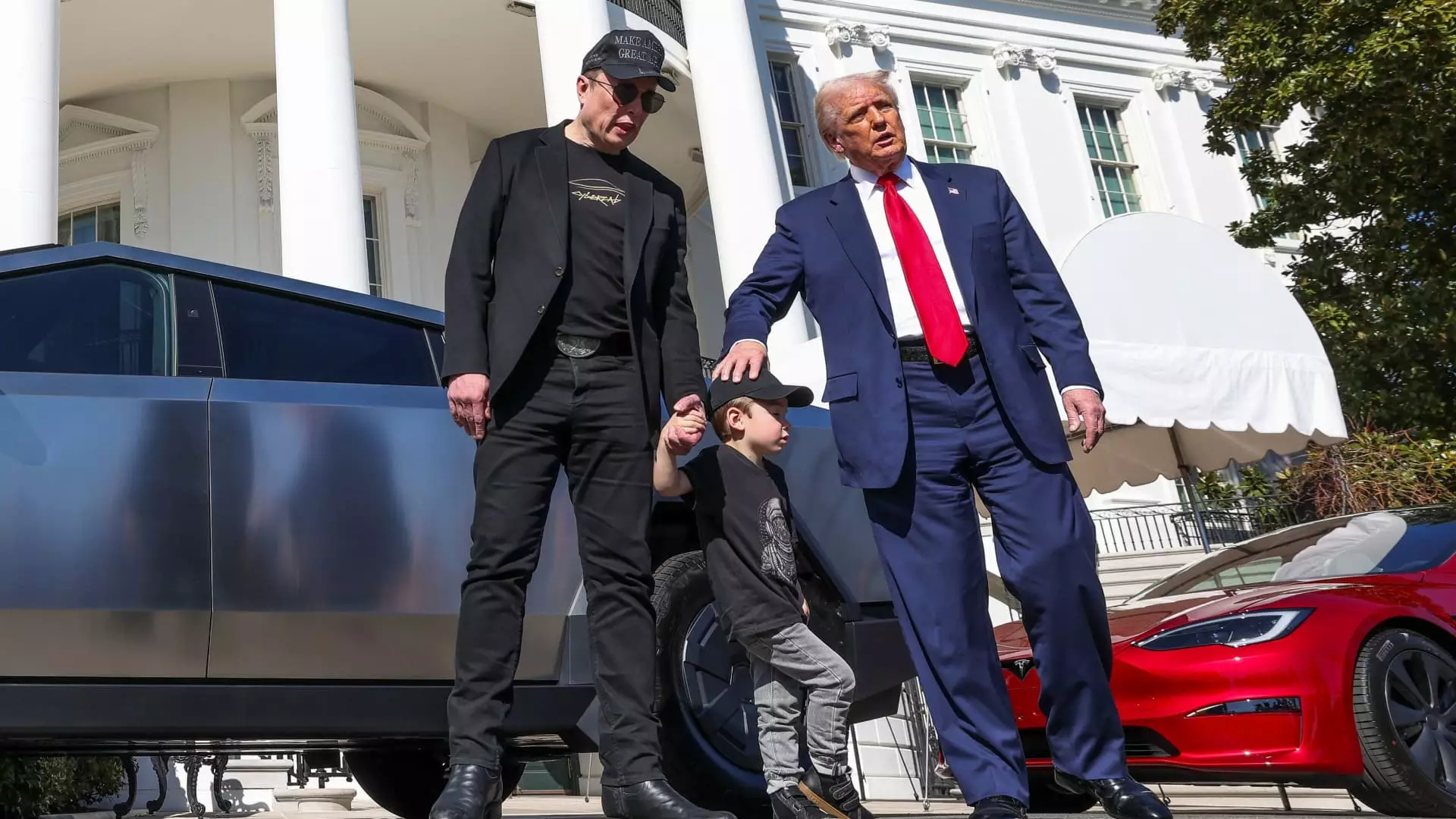In today’s ever-evolving economic landscape, few figures command attention like Elon Musk. Renowned for his unorthodox approach and innovative vision, the Tesla CEO recently expressed his misgivings regarding tariffs during an earnings call. While he made it clear that high and unpredictable tariffs are unwelcome, Musk acknowledged his limited influence over decisions made by U.S. leadership. His frankness reveals a complex interplay between corporate strategies and government policies, especially in an age where trade friction is high and its repercussions are felt across markets.
Tesla’s Resilience Amid Uncertainty
Tesla continues to face scrutiny, with recent quarterly reports painting a troubling picture for the automaker. A staggering 20% drop in automotive revenue year-over-year is alarming, as is the profound 71% decline in net income. Despite these numbers, Musk articulated a notable silver lining: because Tesla has established localized supply chains across North America, Europe, and China, it stands in a more favorable position compared to many U.S. competitors. This strategic localization makes Tesla somewhat insulated from the tempestuous tariffs threatening other auto manufacturers, allowing Musk to project an air of confidence, even amid downtrodden figures.
The Tariff Debate and Musk’s Complex Stance
While Musk has maintained a close relationship with the Trump administration, his comments on tariffs suggest a divergence of views. He labeled Peter Navarro, the administration’s chief trade adviser, with scathing remarks that showcase his disdain for certain trade policies. Yet, amidst this criticism, Musk also demonstrated a nuanced understanding of the complexities at play. He condemned predatory tariff behaviors, emphasizing that vigilance and reasonable countermeasures are essential for fair trade. This signals an evolving stance: rather than outright opposition to tariffs, Musk advocates for their moderation and predictability.
The Aftermath of Trade Tensions
Tesla’s stock has been under siege, particularly in the wake of the president’s tariff-related announcements. The company’s shares experienced a staggering 36% drop in the first quarter—its most catastrophic quarterly performance since 2022. Such tumult following the president’s tariff proposals paints a picture of an investor landscape gripped by uncertainty. Yet, interestingly, Musk insists that Tesla’s domestic manufacturing shield it somewhat from the heavier tariffs imposed on imported vehicles. However, this does not fully insulate Tesla from the aggregate impact of global supply chains, complicating the outlook.
The Energy Sector and Supply Chain Vulnerabilities
The ripple effects of tariffs extend beyond automotive revenue; Tesla’s energy business is also under pressure. Required materials, particularly lithium iron phosphate (LFP) battery cells procured from China, make this segment vulnerable to trade tensions. While Musk mentioned ambitious plans to localize LFP manufacturing in the U.S., challenges persist. The reality is that even with assertions of being a “vertically integrated” business, Tesla is still significantly reliant on international supply chains. Musk’s candid acknowledgment of the limitations in their capacity—illustrated by a lack of self-sufficiency in sourcing basic raw materials like rubber and iron—hints at the fragile underpinnings of their supply network.
Charting a Course Forward
As Musk navigates these turbulent waters, he professes to provide counsel to the president on tariff strategies, asserting that the decision ultimately rests with the administration. His insistence on advocating for lower and more predictable tariffs underscores his belief in fostering fairer trade practices alongside competitive market environments. Despite the controversies and the pushback he faces, Musk’s calls for reform could represent a crucial shift for the automotive and energy sectors. It poses an opportunity for all stakeholders to reevaluate their stance on trade policies that will significantly shape not just Tesla’s future, but the broader economic framework in which it operates.
In this era of economic unpredictability, following Musk’s insights may very well illuminate pathways needed for sustainable growth in the automotive industry while amplifying the emphasis on localization and the recalibration of supply chains.

